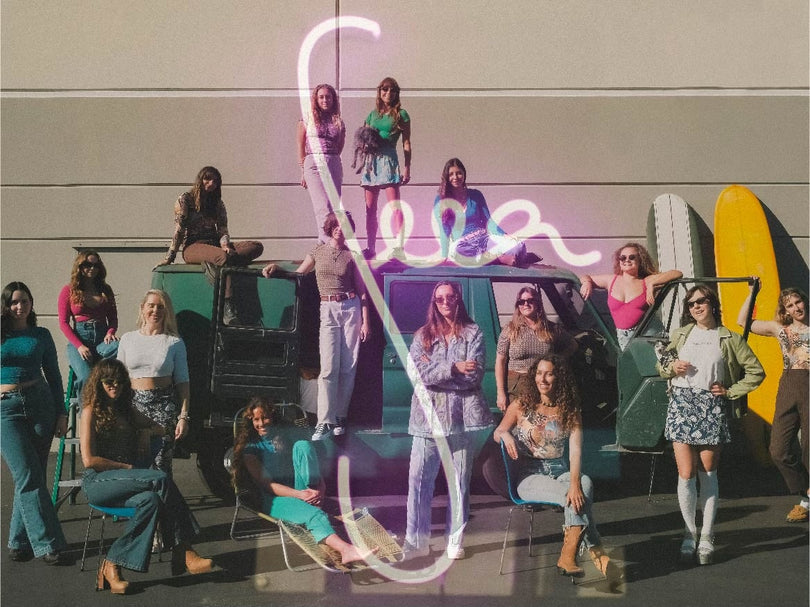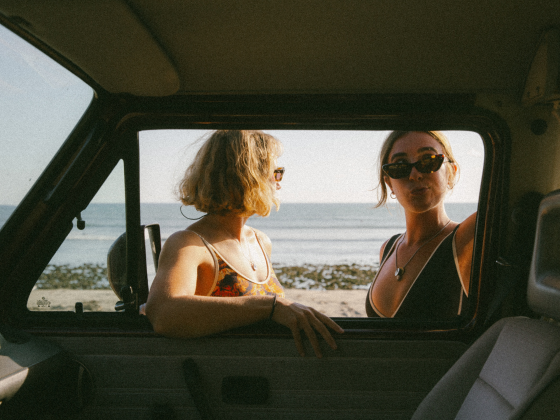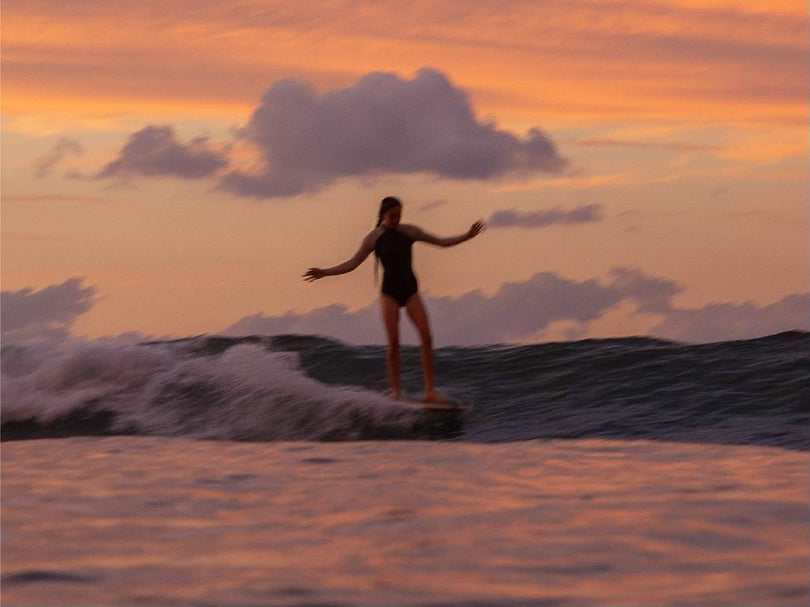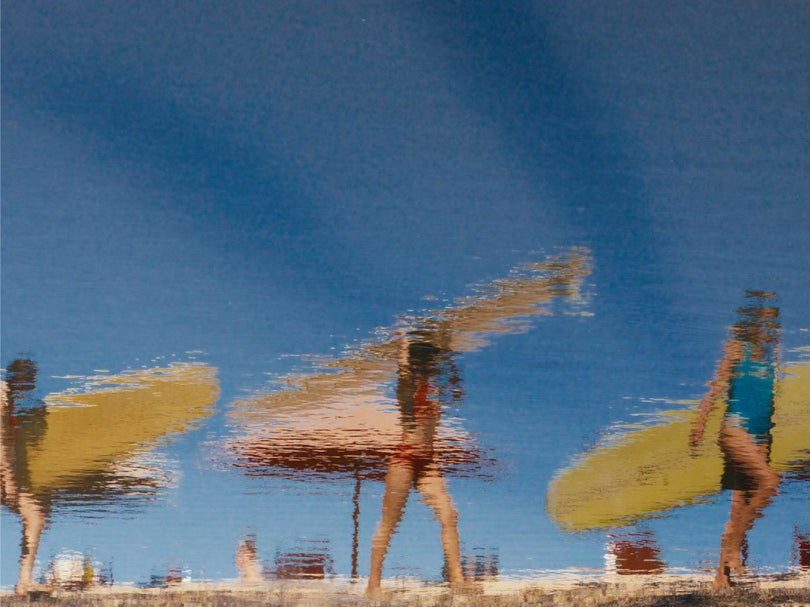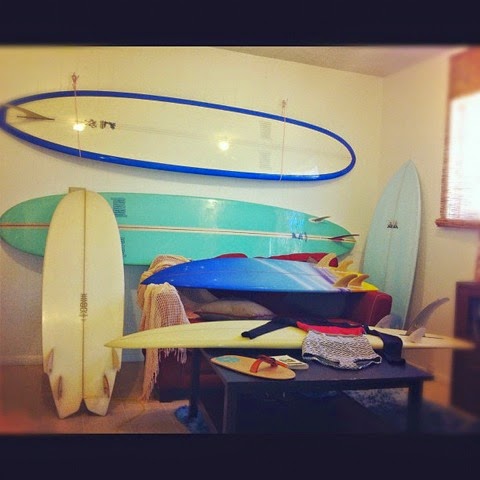 |
Summer Nelson wearing the Hermosa in Salinas, Ecuador. |
While other kids were spending their childhood summer vacations going to Disneyland or the Grand Canyon, Summer Nelson was often packed into a four-wheel-drive motorhome with her parents and seven brothers en route between Southern California and Baja, Mexico, with surfboards and a catamaran trailer in tow.
“I think that this lifestyle not only nourished the surfer in me, but it also taught me that it's ok to live out of the box,” Summer reflects on her untraditional upbringing. “In fact there was a clear message to stay as far away from the box as possible.”
As a third generation of Southern California surfers —her grandfather, Phil Nelson was a member of the San Onofre Surf Club since its founding in the 1930's — Summer continues to live by her family’s teachings and carving a career path that’s fueled by passion for the ocean.
Join us in welcoming Summer as the newest addition to the Seea family as Global Accounts Manager! We are thrilled to have Summer as our first official full time employee. Not only is she a proficient surfer herself, Summer has an innate understanding of our brand philosophy and sales approach that stems from her retail background as a buyer at Surfy Surfy. Her time at the International Surfing Association has also prepared her well for her role as our Global Accounts Manager. When we launched Seea in 2011, Summer was one of our original supporters, so it feels great to have her back in this critical role as we pioneer the future together.
 |
Nelson family camping somewhere around Mexico. |
Summer took us back to her childhood growing up with seven brothers, a stint going “troppo” in Costa Rica for four years and why she ended up back in her home of Southern California.
What’s your family history in Southern California and San Onofre?
My great-grandfather lived in San Francisco during the gold rush. He was an itinerant mining engineer and assayer (this is a very technical term) who worked his way from the dakotas through Colorado and Nevada ending up in San Francisco at the turn of the century. The 1906 earthquake wiped out his business and he moved to Pasadena where he was married and had my grandfather Phil.
My grandfather, Phil Nelson was a member of the San Onofre Surf Club since its founding in the 1930's and he actually met my grandmother there in the water. She was one of the brave few women who paddled out on a wood board that was too heavy for her to lift and had no leash. When I was a kid and my grandfather would tell us those stories. We would ask him why he fell in love with grandma and I remember that he would say, “When she walked down the beach, she made the cutest little footprints in the sand.”
What role did surfing play in your life as you were growing up?
I would honestly say that my family is a bunch of eccentrics who love the ocean in an incurable way to the point of obsession at times. My grandfather was not only a surfer, but he was a test-flight engineer for Lockheed Martin and worked on catamaran design on the side. Before heading home from work in L.A. to Orange County, he would slip out of his business suit in the backseat of his car and stop off for a bodysurfing session at Huntington Beach. I remember my grandfather explaining to me details of hydrodynamics when I was a kid. I paid attention as best as I could because I respected him so much. I feel like things that he said sunk into my brain and stuck.
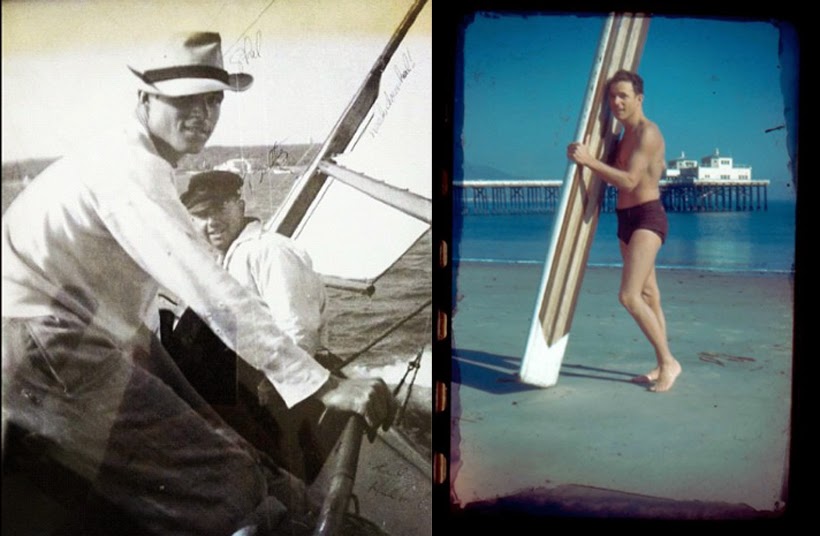 |
Right, Summer's grandfather Phil Nelson sailing and right, with his wood surfboard. |
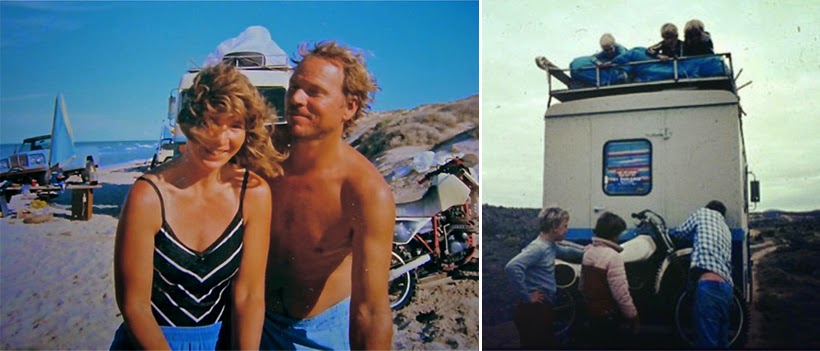 |
Left, Summer's parents in their natural element. Right, the motorhome life. |
What was it like growing up with seven brothers?
I have one brother who is younger than me but the rest are older. It was like growing up in a wolf pack in many ways. I had to be quick and clever any time food was involved, things like that. I was the family grommet. My brothers never treated me like a princess, they treated me like their equal (though there was a solid pecking order in place) and that certainly shaped part of my personality.
You spent some time living in Costa Rica after high school. What initially brought you there?
I first traveled to Costa Rica in the year 2000. After four years of studying Spanish, I wanted to fully immerse myself in the language. With Mexico being a familiar territory, heading a little further south seemed natural. I fell in love with Costa Rica after visiting a couple times and I wound up doing some volunteer work on a farm in the Southern Pacific zone that grows bamboo for sustainable building projects.
I cannot begin to describe the peace that you feel while working in the middle of a bamboo forest on the top of a mountain in Costa Rica. That was where I first heard the word "permaculture" and started reading Bill Mollison's books on permaculture design principles. I found out about another farm nearby that was designed and operating as an organic permaculture farm called "Finca Ipe" with extensive gardens, aquaculture and medicinal plants in production. I did a program there and spent the next year studying, working and surfing, of course.
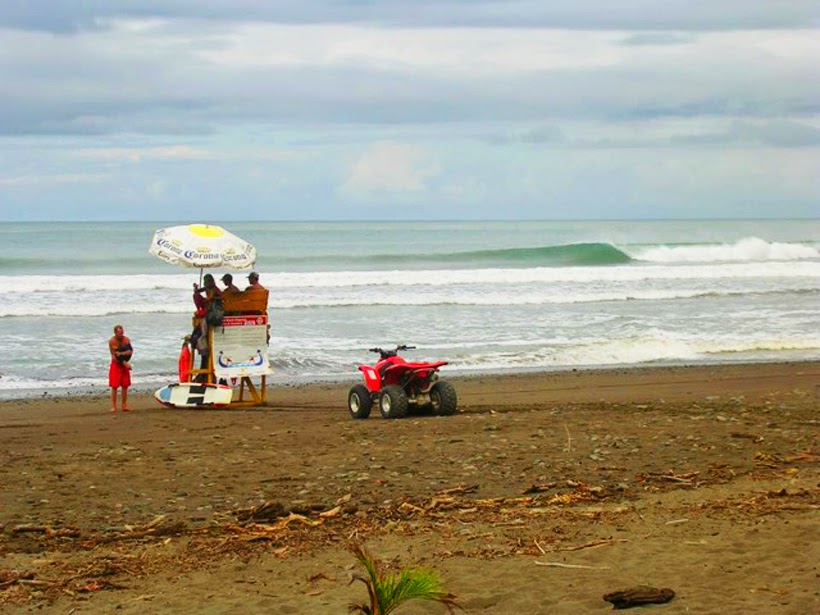 |
Just another day in Costa Rica. |
How did you come to stay there and why?
I remember one day sitting and chatting with the farm owner, Greg in the open-air bamboo house where I lived. I think the words that came out were something like, "If I had the money, I'd buy a piece of this farm from you and live here.” That's exactly what ended up happening. I came back to California for a few years to work, returned to Costa Rica in 2006 and purchased a lot on Finca Ipe. I was 23 years old. I lived there for four more years in a small house on my land, surfed every day and taught surfing in partnership with South Wave Surf Shop in Playa Dominical to make a living.
 |
Summer teaches surfing in Costa Rica. |
What were some of the pros/cons of living in Costa Rica?
I can’t say enough good stuff about Costa Rica. There are more good waves than you could reasonably know what to do with. It is so lush and rich in biodiversity. They have the largest percentage of protected areas in the world. Costa Rica also has no national army which is noteworthy. They are a decidedly peaceful people.
If I had to point out any negatives, I would say it’s easy to go "troppo" with the lack of boundaries and social norms around you as a basic structure for life. People can definitely go off on a tangent down there and nothing or no one is there to stop them. It's a two edged sword, its wild and free, but you have to be able to manage that. Also, it rains A LOT during roughly four months of the year dumping rain for days on end.
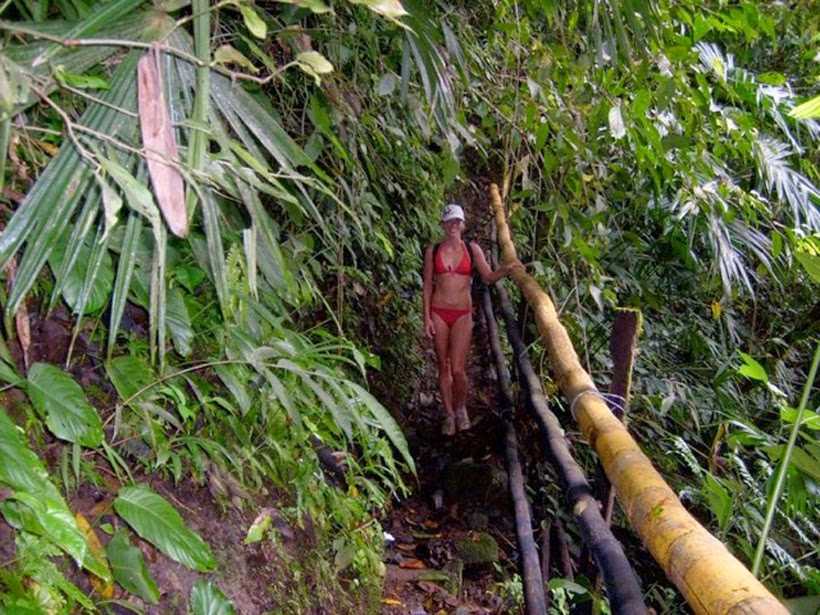 |
Summer in the Costa Rica jungle. |
Why did you come back to San Diego and then work at Surfy Surfy?
I came back to San Diego because I missed my family and my home town. I had a lot of ambition and wanted to build my career, and there is only so much you can do from the middle of the jungle in a third world country. Surfy Surfy was opening in May of 2010, right after I had moved home in March. Since I had experience as a shop manager and buyer in Costa Rica, it was a natural fit. Surfy Surfy is a gem of a store that takes pride in selling locally-made products. The boards they carry are shaped by local craftsmen and glassed at Moonlight Glassing are some of the best in California.
Surfy Summer in Seea from The Seea on Vimeo.
In what ways did you see women’s surfing needs and desires different from male customers while working at Surfy Surfy?
Surfing is a little bit different for everyone, man or woman. It's like a dance floor in that way, you take your personality out there. Everyone experiences surfing in his or her own way.
One of the main differences between men in women as it pertains to their needs in surf gear is that women use the way they dress to express themselves more than men do (generally speaking) whereas men are looking purely for function and simplicity. Women want much more. Something that is simple and functional will be tossed aside by a woman if they don't feel great while they are wearing it. Oftentimes women are choosing fashion over function in the water and finding themselves indecently exposed at inopportune times. Yet they will choose to suffer with this embarrassment before putting on an unflattering, albeit functional piece.
 |
Summer in the original Hermosa at Oceanside Harbor. |
What are your most-worn Seea suits and why do you like surfing in them?
The Hermosa is my most worn suit. I love that it is feminine and sexy in a very classy way. That suit will hold up to the harshest wipeouts and keeps my back and shoulders from frying in the sun. I have had the most lovely compliments from people while wearing those suits. One of the best was when a guy told me it looked like a cross between a bathing suit and a classy cocktail dress. Thank you!
Where are your favorite home break spots to surf and why?
Swami’s is straight west of my house and I have always really appreciated that wave, it just has great shape. I also like Beacons, Ponto and Oceanside Harbor.
 |
Summer surfing at one of the insane lefts in Bali. |
Before you came to work for Seea, you were at the International Surfing Association. What did the ISA do, and what did you like about working for that organization?
The ISA is the International Federation for the sport of surfing. Their members are the National Surfing Federations from countries around the world. The ISA does so much great work for the development of the sport of surfing around the world.
I would say that the most fulfilling parts of my job were developing relationships with surfers from every far corner of the earth and hearing their stories. Most recently, I was working with a lot of the West-African Countries and even a group of surfers from Afghanistan to see the positive impact that surfing has on the lives of people from countries that have experienced a lot of political conflict and war. It's radical and very positive.
The ISA also has a scholarship program for surfers under 18-years-old. Each year they give $1,000 scholarship awards to 50 young surfers who prove to be working hard in school and have financial limitations. I managed the processing of applications and it would bring tears to my eyes to see the photos and read the essays of these spirited young kids who just LOVE surfing — kids surfing in the frigid waters of Chile, orphans from South Africa who picked up a board and it made their world make sense, a Muslim girl from Indonesia who was told she shouldn't surf. Girls in a bikini are considered to be immodest and the tan that comes along with it is not desirable in their culture.
 |
Summer's dad with his boat and buggy in Mexico. |
What do you find are the common values and philosophies when working with fellow surfers?
I think there are certain commonalities between almost all surfers. Ultimately I think we all surf because we enjoy it immensely. I once watched this really great documentary called "Happy" and neuroscientists explained that the brain is stimulated to release dopamine for different reasons, one thing that the brain likes is physical activity, the brain also loves new situations or novelty, and being in nature is a big one as well.
I think surfing stimulates the brain in a multifaceted way. We get this immersion in nature, a meditative state of being completely in the present moment, and our brains are stimulated by this liquid, ever-shifiting environment. I'm convinced that it stimulates our brains to release a good amount of dopamine. The same scientists explain that these dopamine centers of the brain are like a muscle in that, using it makes it stronger and more active. I think all surfers place inherent value on the way surfing positively impacts our lives.
Welcome to the family Summer!
Inspired to go to Costa Rica? Check out Seea-friendly surf camps in Costa Rica and Nicaragua.
 |
| We love you Summer! |

